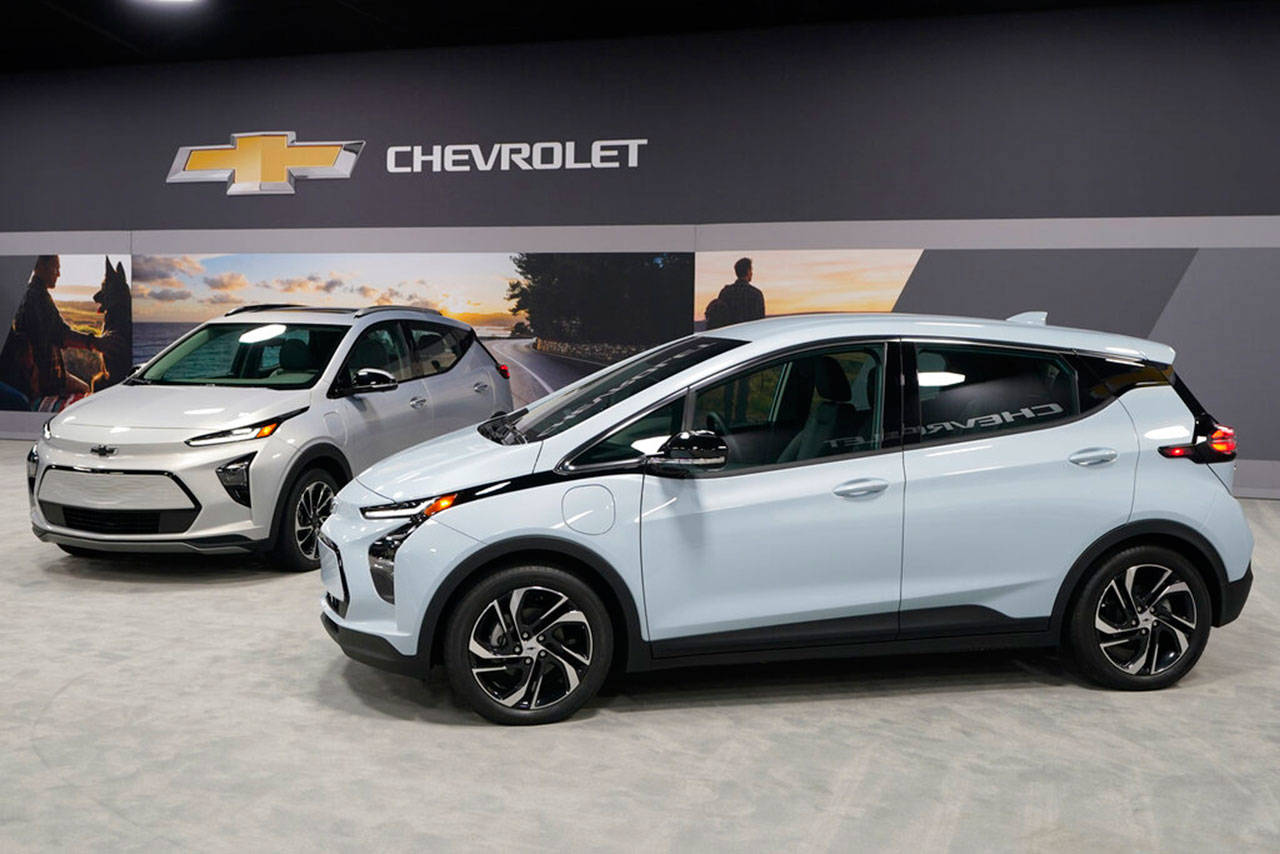There’s a lot of wiggle room between a mandate and a goal, but a shift this month in legislation regarding the sale of new vehicles in Washington state could still help power the transition from gas- and diesel-powered vehicles to electric and other zero-emission vehicles.
As originally written, House Bill 1204 would have mandated that all cars and light-duty trucks of model year 2030 and beyond be electric vehicles, to be registered and licensed in the state. The mandate wouldn’t have affected the sale and registration of used fossil fuel-powered vehicles manufactured before 2030.
But that mandate isn’t what came out of the House Transportation Committee on Monday, before a legislative deadline. The substitute legislation that survives drops the mandate and the requirement for regulations, establishing a goal that cars and light-duty trucks sold in 2030 and after be electric.
If it seems as if all the power of the original bill has been drained, the substitute still had enough juice left in its battery to win approval from 17 committee members, with nine opposed and three voting no recommendation.
What likely forced the scaling back of the bill’s language was guidance from the state Attorney General’s office, as reported earlier in the month by The Seattle Times. Lawmakers sponsoring the original legislation were advised that if adopted the electric-only mandate would likely face legal challenges in federal court that the bill had exceed the state’s authority under the federal Clean Air Act.
California, itself moving to set a similar electric-only mandate for new vehicle sales by 2035, is the only state granted an exemption under the Clean Air Act to set its own vehicle emission standards, although other states can choose to follow California’s tougher standards. In addition to setting a deadline five years earlier than California’s, that state already is facing litigation regarding its new rules. Washington state lawmakers were advised that the state legislation might interfere with California’s effort.
Even the down-shifting of gears from a mandate to a goal, however, still allows forward movement on a transition away from gas and diesel vehicles, which remain the largest source of carbon pollution and greenhouse gases in the state. And that transition is supported by a majority of state residents and by the continuing growth in electric vehicles’ market share.
A goal can still signal to motorists and the auto industry why the transition to electric vehicles must be pursued.
A poll by George Mason University’s Center for Climate Change Communications found that 60 percent of Washington state residents polled either strongly agreed (30 percent) or somewhat agreed (30 percent) that restricting sales of new vehicles to electric power by 2030 was good policy. Asked if they supported or opposed a mandate, 59 percent supported, 35 percent were opposed.
Similar majorities or pluralities said such a mandate would have positive impacts on air quality, health, climate change, the state economy, state jobs and the state’s energy independence.
While electric vehicles are still outnumbered on the state’s and nation’s roads, their presence is growing. Sales in the state for electric and plug-in hybrids grew from 7,068 in 2017 to 12,650 in 2018, rising in market share from 2.5 percent to 4.3 percent; Washington is behind only California and New York for the percentage of electric vehicles sold for 2017-18.
As of the end of 2018, Washington state had more than 42,500 plug-in electric vehicles on the road.
And Washington is well-suited to serve as a leader in the use of electric vehicles because of its relatively low rates for electricity, 70 percent of which comes from renewable sources, on a path toward 100 percent carbon-neutral electricity by 2030.
Consumer concerns regarding the mileage range of electric vehicles now may be waning as battery and electric vehicle technologies improve and become more affordable.
As well, work continues by the state and others to build out the vehicle-charging infrastructure necessary to recharge electric vehicles, including an investment of $17 million by the state Department of Ecology from the settlement with Volkswagen over its false “clean diesel” claims; another $10 million investment by the state Department of Transportation and $10.7 million in similar work by the state Department of Commerce, according to information from Coltura, a clean transportation advocacy group.
And those advancements in consumer interest and infrastructure haven’t gone unnoticed by the auto industry.
Less than a month ago, General Motors announced its commitment to beginning its phase-out of gas- and diesel-powered vehicles, and selling only zero-emission vehicles by 2035, a recognition of the increasing demand and the global imperative to wean transportation away from carbon-emitting fuels.
Goals, of course, don’t have the teeth of mandates. That realization goes back to 2007 when the Legislature set a “goal” of electrifying the vehicle fleets of state agencies and local governments by 2018. Neither the state nor local governments managed to increase the number of electric vehicles in those fleets by more than a fraction.
But mandates that are tied up in lawsuits don’t do much good either.
Regardless of mandates or goals, the transition to electric vehicles must continue and accelerate, a realization that was also clear in the George Mason University’s poll of state residents. Asked if the switch to electric vehicles would happen quickly enough to avoid the worst impacts of climate change, only 26 percent said it would; 43 percent said it wouldn’t.
Talk to us
> Give us your news tips.
> Send us a letter to the editor.
> More Herald contact information.

























